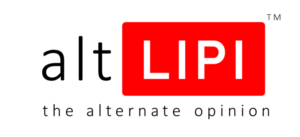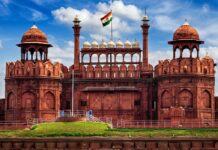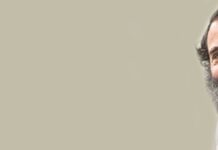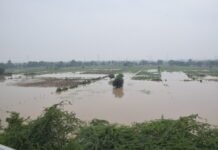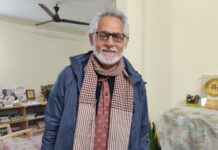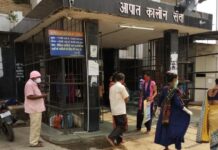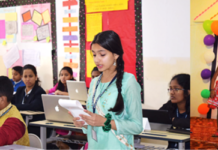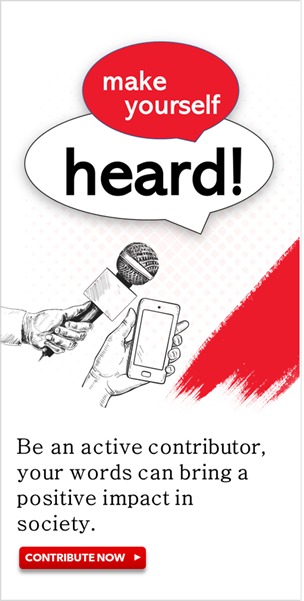We thought we would be able to resolve the covid crisis once and for all with a vaccine against the dreaded infection at our disposal. The question uppermost in our mind was when the vaccine would be available to us. The turbulent 2020 was though marked by the morbid fear and anxiety of the unexpected, the hope of an end to the pandemic kept us all engaged.
We thought the coronavirus is on its last leg and is just biding its time awaiting the much-touted elixir of life making its majestic entry. Once that happens, the demons of the virus will vanish into the thin air. Looking at the vaccine as a mere contribution of science to the welfare of mankind, we forgot to take the human aspects like fear, greed, ignorance, confusion into consideration.
Even the avid readers of Aristotle and Voltaire saw no emotional factors inherent in the situation we are in. Our only concern was the suffering and prospects of death from the viral infection.
The New Year, 2021, brought the citizens of the country face to face with covid vaccination when frontline workers and those involved in essential services administered the vaccine doses. Thus took off the vaccination process invoking unconditional praise and support for the scientists and the frontline workers dedicated to the cause of public wellbeing.
As long as members of the medical fraternity were getting their jab things went smooth, the way we had expected. By March 1, 14 million frontline workers, including doctors and paramedics in addition to 20 million other frontline health workers, were vaccinated against the target of 30 million.
At this stage, there were no apprehensions whatsoever among the people with regard to the two variants of the vaccine available, namely Covishield and Covaxin, hence no chaos or confusion. The first phase was a win-win situation for both science and human emotions.
Soon after, the second phase got underway with senior citizens (over sixty years of age) getting vaccinate shots first. This phase brought in the first human emotions into the picture. Since this generation is known to be traditionalists, convincing them about the newly-made vaccine was a challenge. They had a lot of questions borne out from the fear of the unknown ranging from why us first, what if it makes it worse etc.?
Many of them felt they were being used as lab rats merely because of their advanced age. Those who posed such questions either gave in eventually after much cajoling and got the jab or were lost in indecisiveness which quite often ended up on a decision never to get vaccinated. So, the traditionalist generation brought to light the first human emotion into the picture – the fear of the unknown.
Next came the group consisting of citizens aged 45 and above from April 1. Known for its pragmatic approach to life, this group brought in more challenges for the vaccination process. Their desire to be counted among the young had a bearing on their choice. Their technical skills were put to a test as they were supposed to book slots on Aarogya Setu app. Using the app was a mere initial challenge followed by the human factors of fear and confusion hard to handle.
The cause of confusion was palpable. While on one the one hand there were WHO website and Aarogya Setu app that were convincing the people to get vaccinated, WhatsApp forwards and a few misleading videos on YouTube were a deterrent on the choice in favour of the vaccine on the other. However, the determination of sons, daughters, and family doctors helped the confused generation understand see reason.
There was also confusion over when to get vaccinated as in most of Indian families this age group is the only breadwinner of the family. Despite the overriding confusion over when, and whether or not to trust the vaccine, many of them got vaccinated. However, fear of the unknown remained an emotion that was high in this generation. Nonetheless, they overcame it up with bravado as a duty towards their families and the country at large.
On April 11, Prime Minister Narendra Modi heralded a four-day Teeka Utsav (“vaccine festival”). The festival was a hit with the number of people vaccinated being 1,28,98,314.]
Sputnik V hit the Indian market on April 16. The Sputnik launch brought in its wake changes in the way the vaccines were supplied. Half the supply to be offered free-of-charge to the residents aged 45 and over and priority workers would go to government-run clinics while the other half would go to states chosen on the basis of factors such as the number of active cases and how quickly they are administered the vaccines. The remainder would be offered to individual states and purchased in the open market, even though private hospitals for residents aged 18 and above.
The involvement of private hospitals brought greed into the picture. As the vaccines became affordable, a lot of businessmen took undue advantage from this opportunity. Private hospitals and sundry business enterprises started profiteering by selling the vaccines at a premium that far exceeded their original price.
A lot of people preferred private organisations over government-run drives for the convenience of timing and the privilege to choose from among the vaccines on offer. In some states, delay in supply by the government for the 18-plus gave the private organisations an opportunity to make money.
The states and the private organisations were found in the rat race to grab as much vaccines as possible to make more profit. This greed only helped the rich at the cost of the underprivileged. On June 7,, the Prime Minister passed on a rule that no private hospital could charge more than Rs 150 for a vaccine jab. This abruptly stopped vaccination programmes organised by MNCs for employees and their families. The rule kept the greed of private hospitals in check, but it also slowed down the process.
Since a lot of people aged 18 and above treat vaccines as a brand of shoes, the group brought in additional challenges to the vaccination process. Some of them were found ignorant enough to ignore their own safety and that of their families by delaying the process by waiting for certain international vaccine brands.
Even though human emotions came in the way, the dedication of frontline workers, educators, NGOs, and timely policy decisions of states saw through the vaccination process. During the process, emerged a lot of unsung heroes who took it upon themselves to voluntarily spread awareness about vaccination.
If all of us keep up the progress on the vaccination front, we will be able to eradicate the dreaded scourge in a few years as we did in the case of smallpox and polio. While the negative human emotions borne out from fear of the unknown, cause chaos and confusion, positive ones like hopes and aspirations help us find a way out. There is always hope for a better tomorrow.
Disclaimer: We do undertake rigorous checks on content provided by contributors before publishing the same. If you come across some factual errors, kindly bring this into our notice and we shall review your objection and claim as per our policy and display correction credits and corrections on the article itself.
The opinion expressed in the article is of the writer. Writer is a freelance journalist/journalist based in Delhi
